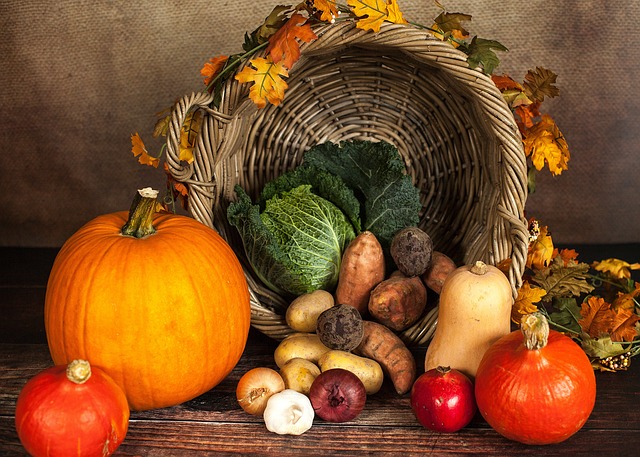The Best Plant-Based Protein Sources for Vegetarians and Vegans
If you follow a vegetarian or vegan diet, you know how important it is to get enough protein to maintain muscle mass, boost metabolism, and support overall health. Unlike animal-based protein sources, plant-based proteins come with added benefits like fiber, antioxidants, and vitamins, making them an excellent choice for a well-rounded diet.
In this blog, we’ll explore the top plant-based protein sources that vegetarians and vegans can include in their meals to meet their protein needs without relying on animal products.
1. Lentils
Lentils are a fantastic source of plant-based protein, making them a staple in many vegetarian and vegan diets. In addition to being packed with protein, they are also high in fiber, iron, and other essential vitamins and minerals.
-
Protein Content
About 18 grams of protein per cooked cup (198 grams). -
Health Benefits
Lentils are great for heart health, digestive health, and stabilizing blood sugar. They’re also versatile and can be used in soups, salads, stews, and veggie burgers. -
Tip
Pair lentils with a whole grain like quinoa or brown rice to create a complete protein, providing all nine essential amino acids.
2. Chickpeas (Garbanzo Beans)
Chickpeas are another excellent source of plant-based protein and are commonly used in Mediterranean and Middle Eastern dishes. They are high in fiber and help improve digestion while promoting a healthy gut.
-
Protein Content
About 15 grams of protein per cooked cup (164 grams). -
Health Benefits
Chickpeas support heart health, weight management, and provide a steady source of energy. They are also rich in antioxidants, which can help protect your cells from damage. -
Tip
Use chickpeas to make hummus, toss them in salads, or roast them as a crunchy snack.
3. Tofu and Tempeh
Tofu and tempeh are made from soybeans, making them an excellent source of complete protein (contains all nine essential amino acids). Both tofu and tempeh are versatile ingredients that can be used in a variety of dishes, from stir-fries to sandwiches to smoothies.
-
Tofu Protein Content
About 10 grams of protein per 4-ounce serving. -
Tempeh Protein Content
About 21 grams of protein per 4-ounce serving. -
Health Benefits
Both tofu and tempeh are good for heart health, bone health, and muscle maintenance. Tempeh is fermented, which means it also contains probiotics, promoting a healthy gut. -
Tip
Tempeh has a firmer texture and nuttier flavor than tofu, making it ideal for grilling or sautéing. Tofu can be scrambled, added to soups, or blended into smoothies for a creamy texture.
4. Quinoa
Quinoa is a complete protein, meaning it contains all nine essential amino acids your body needs. It’s a great gluten-free grain and an excellent substitute for rice or couscous.
-
Protein Content
About 8 grams of protein per cooked cup (185 grams). -
Health Benefits
Quinoa is rich in fiber, magnesium, and B vitamins. It helps with digestion, supports heart health, and provides sustained energy. Additionally, it is an excellent source of antioxidants. -
Tip
Use quinoa as a base for salads, bowls, or as a side dish to replace rice or pasta. It pairs well with roasted vegetables, beans, or a variety of plant-based proteins.
5. Edamame
Edamame (young soybeans) are a protein-packed snack that’s also rich in fiber, vitamins, and minerals. Whether you enjoy them steamed or roasted, edamame is an easy and delicious way to boost your protein intake.
-
Protein Content
About 17 grams of protein per cooked cup (155 grams). -
Health Benefits
Edamame supports brain function, improves skin health, and can help lower cholesterol. It’s also a great source of folate, which is essential for cell growth and function. -
Tip
Snack on edamame with a sprinkle of sea salt or toss it in a salad for extra protein.
6. Nuts and Seeds
Nuts and seeds are not only a great source of protein, but they also provide healthy fats, fiber, and a range of essential vitamins and minerals. Some of the best sources include almonds, chia seeds, pumpkin seeds, and hemp seeds.
-
Protein Content (per ounce)
-
Almonds: About 6 grams.
-
Chia Seeds: About 4 grams.
-
Hemp Seeds: About 10 grams.
-
-
Health Benefits
Nuts and seeds are rich in heart-healthy fats, particularly omega-3 fatty acids. They help reduce inflammation, support brain function, and can promote healthy skin. -
Tip
Add a handful of nuts or seeds to your oatmeal, smoothie, or salad for an easy protein boost. You can also use nut butter as a spread on toast or in smoothies.
7. Spirulina
Spirulina is a type of blue-green algae that is packed with protein and nutrients. It is often sold in powder form and can be added to smoothies, juices, or energy bars.
-
Protein Content
About 8 grams of protein per 2 tablespoons (about 14 grams). -
Health Benefits
Spirulina is loaded with antioxidants, vitamins (like B12), and essential minerals such as iron. It supports immune function, detoxification, and has anti-inflammatory properties. -
Tip
Start with a small amount of spirulina (a teaspoon) and gradually increase as you get used to the taste. It pairs well with fruit smoothies.
8. Seitan
Seitan, often referred to as “wheat meat,” is made from gluten and is a great protein source for those following a vegetarian or vegan diet. It has a meat-like texture, making it an ideal meat substitute for plant-based meals.
-
Protein Content
About 21 grams of protein per 3-ounce serving. -
Health Benefits
Seitan is low in fat and can be a good source of iron and other essential minerals. However, because it’s made from wheat gluten, it’s not suitable for people with gluten sensitivities or celiac disease. -
Tip
Use seitan in stir-fries, sandwiches, or as a meat substitute in tacos and wraps. It’s perfect for grilling, sautéing, or baking.
9. Green Peas
Green peas are an excellent source of protein, fiber, and various vitamins and minerals, including vitamins C and K, folate, and iron.
-
Protein Content
About 8 grams of protein per cooked cup (160 grams). -
Health Benefits
Green peas support heart health, aid in digestion, and provide a steady source of energy. They’re also rich in antioxidants that help protect against inflammation. -
Tip
Toss peas into soups, pasta dishes, or grain bowls. You can also blend them into a creamy dip or use them as a side dish.
10. Plant-Based Protein Powders
For those who have trouble meeting their protein needs through food alone, plant-based protein powders (such as pea protein, hemp protein, or brown rice protein) are a convenient and effective way to supplement your diet.
-
Protein Content
Typically 20-25 grams of protein per scoop (about 30 grams). -
Health Benefits
Plant-based protein powders are typically free of dairy, gluten, and artificial additives. They provide all the essential amino acids, making them a great option for muscle recovery and overall health. -
Tip
Add protein powder to your smoothies, oatmeal, or baked goods for an easy protein boost throughout the day.
A Diverse Plant-Based Diet
Getting enough protein as a vegetarian or vegan can be simple and delicious with the right food choices. Incorporating a variety of plant-based protein sources like lentils, tofu, quinoa, and nuts into your meals ensures that you meet your protein needs while also enjoying a wide range of health benefits.
Experiment with different protein-rich foods and find the ones that you enjoy most, ensuring your diet is as nutrient-dense and satisfying as possible.


